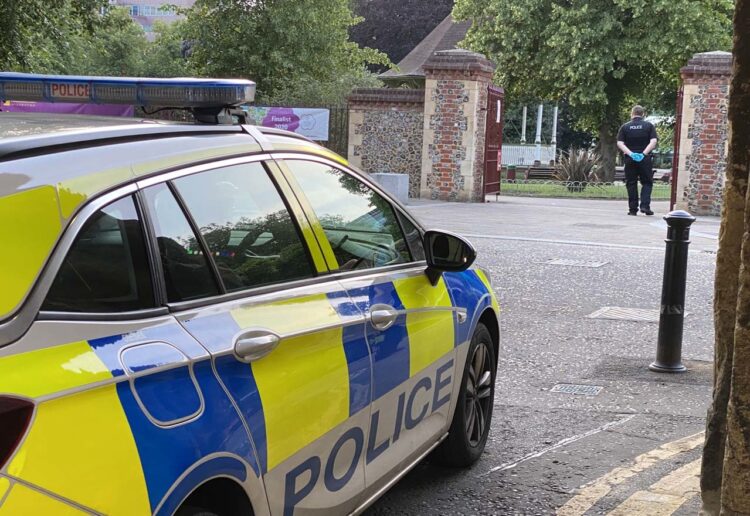THE FORBURY Gardens terrorist attack could have been avoided had authorities worked more closely together, and taken action over a 999 call made by Khairi Saadallah the day before.
In June 2020, three men were murdered in the Reading town centre park.
In 2021, under anti-terror laws, Saadallah admitted the murders and attempted murder of three other people. He was given a whole-life prison sentence.
An inquest into the deaths of James Furlong, David Wails, and Joe Ritchie-Bennett concluded on Friday, April 26, after a six week hearing at the Old Bailey.
Judge Coroner Sir Adrian Fulford concluded there were major problems with intelligence sharing between authorities.
He said of Berkshire Healthcare NHS Foundation Trust had provided Saadallah with mental health services, but left him a in a catch-22 dilemma: the mental health disorders he was thought to suffer with (PTSD and Personality Disorder) required a patient to demonstrate a lengthy period of stability before treatment was commenced, however they simultaneously failed to provide the care coordination role that would help to achieve that stability.
They instead sought to characterise him as having social care issues as being the cause of stresses in his life.
The Midlands Partnership NHS Foundation Trust (MPFT) provided mental health services in prison, were also said to have failed to provide Saadallah with therapy, as he was incorrectly labelled as someone who was uninterested in treatment.
Sir Adrian said there was a failure to provide a joined-up approach between the two healthcare providers.
This contributed to Saadallah’s probation officer’s inability to obtain assistance for him upon his release from prison on June 5, 2020, despite his significant psychiatric difficulties and risk of serious violence.
“It is at least possible that the failure to provide long-term therapy, at least from 2016, meant that KS failed to achieve the level of stability that would have avoided him ‘finally (settling) on jihad as the solution to his turmoil’.
Had Saadallah received this, there was a potential to reduce his “aggressivity, impulsivity and substance abuse, along with his offending, between 2015 and 2019”. It would also have recognised he was a risk to the public.
Sir Adrian noted that Saadallah repeatedly indicated over several years he had a terrorist mindset, a capacity to kill and serious psychiatric problems.
There had been failings in inter-agency intelligence and information sharing on this front.
He said this background information should have been shared between the police and probation service. Had this been available, he could have been recalled to prison on June 19, 2020 – after he had made a 999 call threatening to blow himself up and harm others.
Sir Adrian found that he would have been returned to custody that night, thus preventing him from carrying out his attack the following day.
He said the deaths of James, Joe and David: “would probably have been avoided if, first, the mental health services had given greater priority to stabilising KS and securing access to long term psychological therapy. Had they done so it is at least possible that the attack would have been prevented by the reduction of KS’s aggressivity, impulsivity, substance abuse and extremism, although the effect on extremism is more difficult to determine. Second, if his extremist risk had been better analysed, KS would probably then have been recalled to custody on 19 June 2020 meaning these attacks would never have happened”.
As a result, Sir Adrian intends to issue Prevention of Future Deaths reports setting out these concerns to Berkshire Healthcare NHSFT, Midlands Partnership NHS Foundation Trust, The Chief Constable of Thames Valley Police, The Secretary of State for the Home Department and The Secretary of State for Justice within the next three weeks.
























